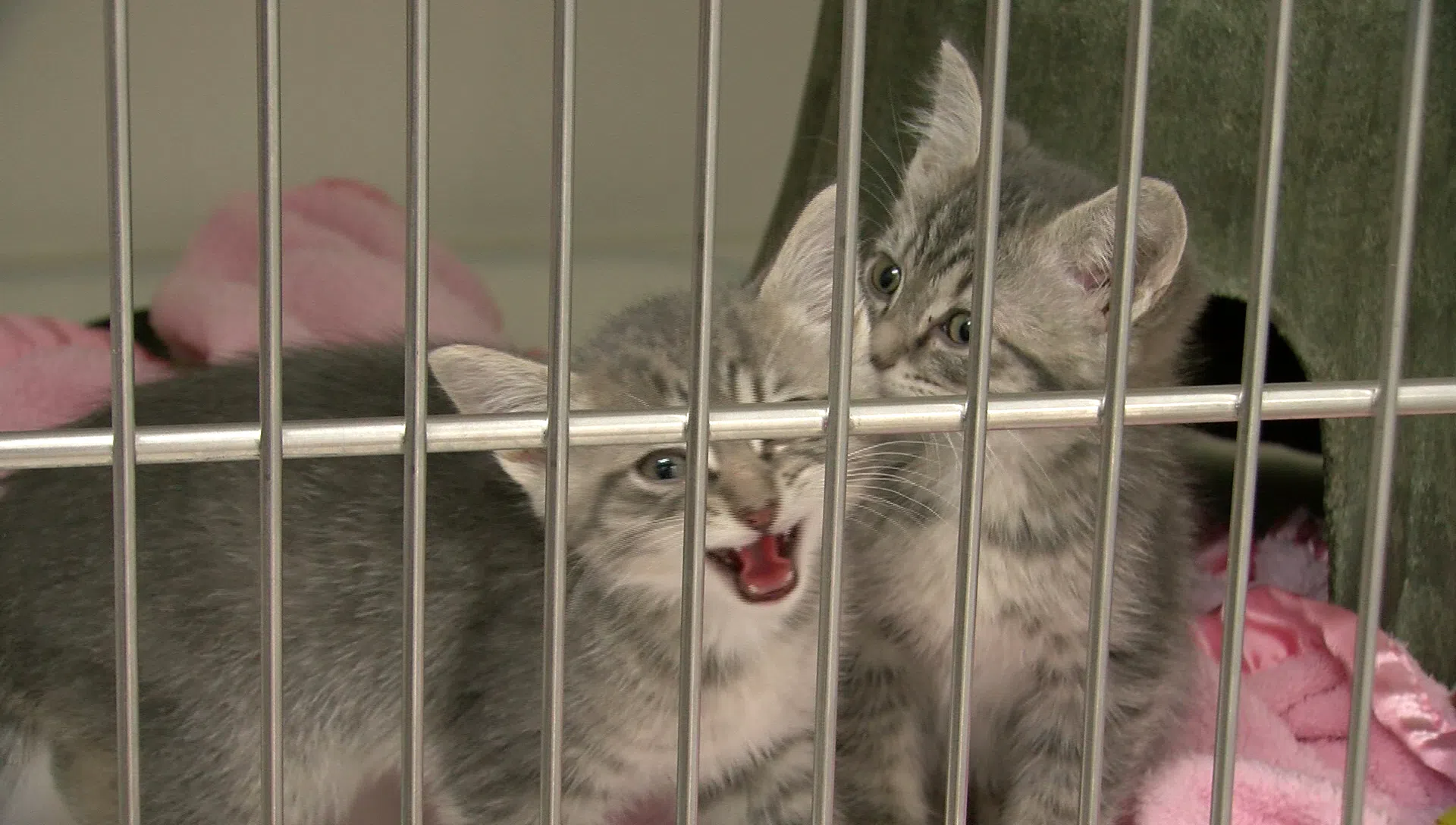
APARC asking for food donations due to spring influx of kittens
MEDICINE HAT, AB – Kitten season is alive and well in Medicine Hat, with few knowing the struggles that come with it better than APARC.
Over just the past four weeks, staff at APARC have accepted 40 kittens into care through either its shelter or foster care families.
General manager Kaylyn Genio said that number is fairly consistent with previous years, however they usually don’t see such a spike in May.
